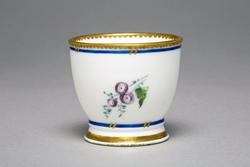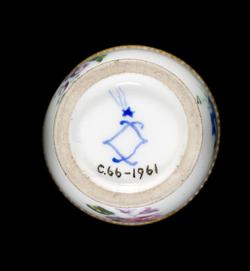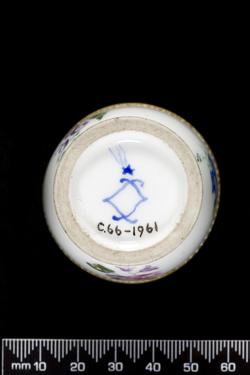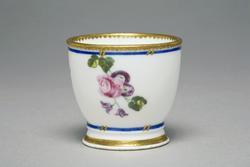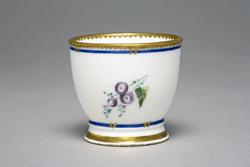Current Location: In storage
Titles
Coquetier sans pied ou petit coquetier
Maker(s)
Factory:
Sèvres Porcelain Manufactory
Entities
-
Egg cup
- coquetier sans pied
- petit coquetier
Categories
Description
Soft-paste porcelain, painted in enamels with three sprays of flowers and leaves, and gilded
Soft-paste porcelain, painted overglaze in blue, green, dark pink, purple, and grey enamels, and gilded. The cup stands on a low foot. The white ground is painted with three sprays of polychrome flowers and leaves, with above and below, a blue band crossed at intervals by two short diagonal gold lines. There is a band of gilding round the foot and a dentilated band of gilding round the rim.
Notes
History note: Uncertain before Louis C.G. Clarke, LL.D, Cambridge
Legal notes
L.C.G. Clarke Bequest, 1960
Measurements and weight
Height: 4.3 cm
Acquisition and important dates
Method of acquisition: Bequeathed
(1961-04-27)
by
Clarke, Louis Colville Gray
Dating
18th Century, Mid
1757
CE
-
1769
CE
Note
Egg cups were made at Vincennes from 1753. The first examples had a circular foot and stem, resembling a small wine glass, which may have been impractical. A model and moulds for a smaller egg cup, described as 'petit coquetier' were made in 1756, probably for the model being sold in 1757. They were made in small numbers in the 1750s and became more popular in the 1760s.
Egg cups were only rarely included in orders for services, for example a service purchased by M. de Laborde from the marchand-mercier Lazare Duvaux between 1 January and 1 July 1758 included three eggcups costing 24 livres, and a service for the Maréchal -duc de Richelieu bought through Mme Duvaux at the end of 1758 included two eggcups at 18 livres each (see Documentation, Peters, 2005).
School or Style
Rococo
Components of the work
Decoration
composed of
enamels
( blue, green, dark pink, purple, and grey)
gold
Foot
Diameter 3.5 cm
Rim
Diameter 4.7 cm
Materials used in production
presumed lead-glaze
Lead-glaze
Soft-paste porcelain
Techniques used in production
Throwing
: Soft-paste porcelain, thrown, lead-glazed, and painted overglaze in blue, green, dark pink, purple, and grey enamels, and gilded.
Glazing (coating)
References and bibliographic entries
Identification numbers
Accession number: C.66-1961
Primary reference Number: 75771
Stable URI
Audit data
Created: Saturday 6 August 2011
Updated: Monday 18 December 2023
Last processed: Thursday 14 August 2025
Associated departments & institutions
Owner or interested party:
The Fitzwilliam Museum
Associated department:
Applied Arts
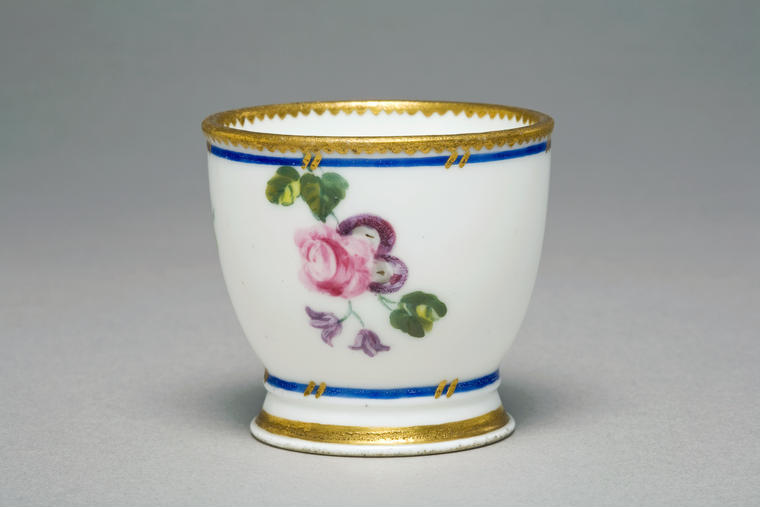
 IIIF Manifest
IIIF Manifest
